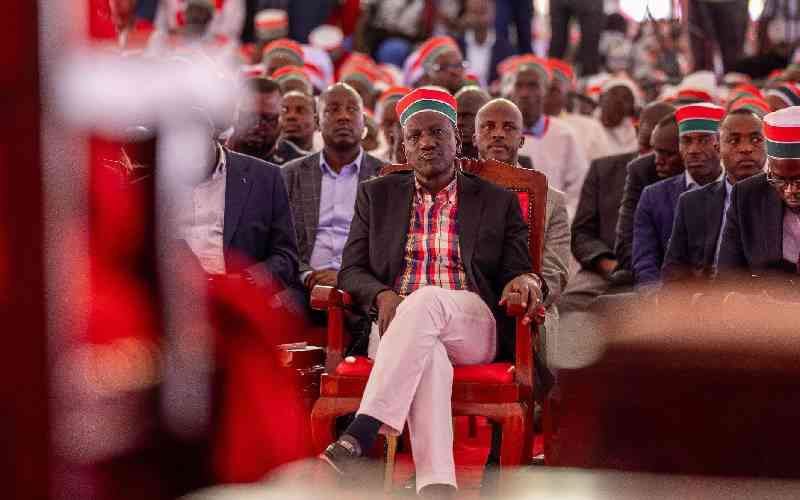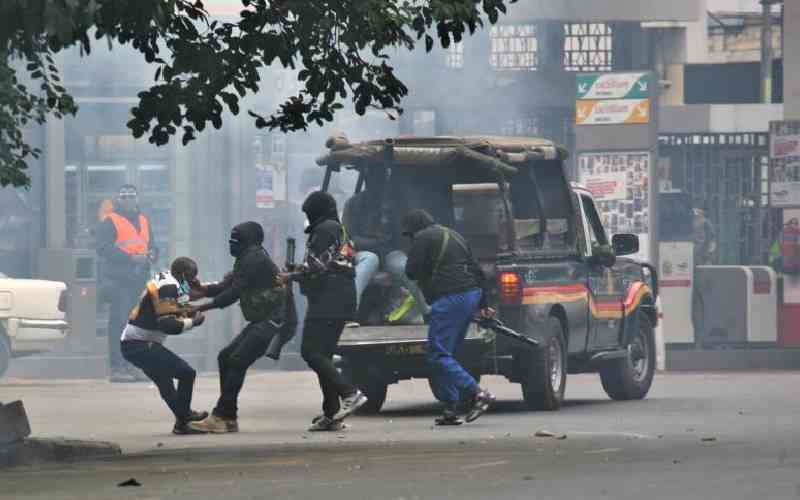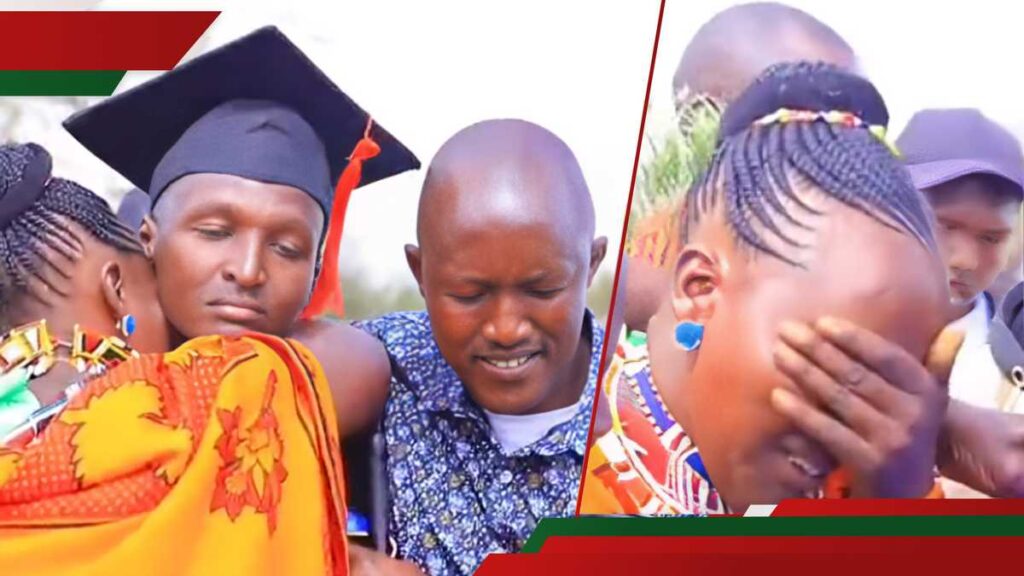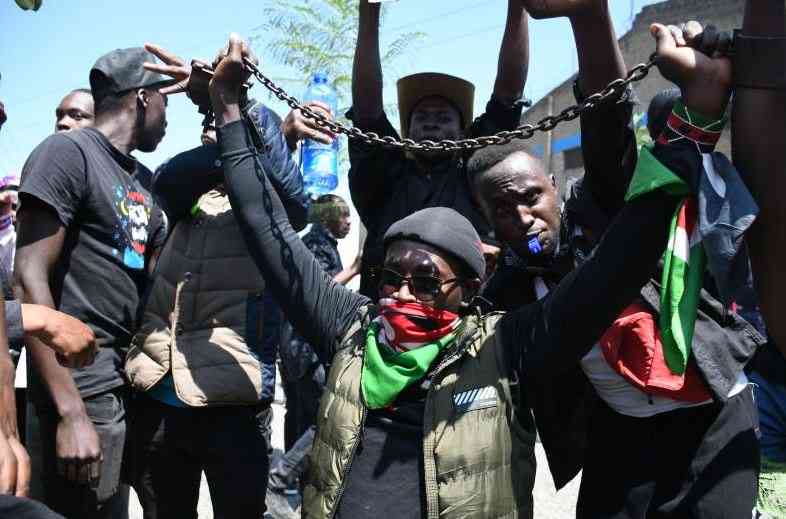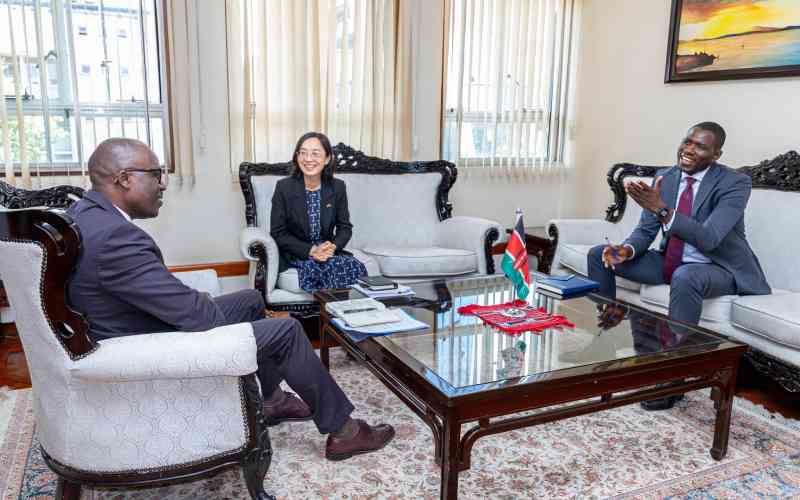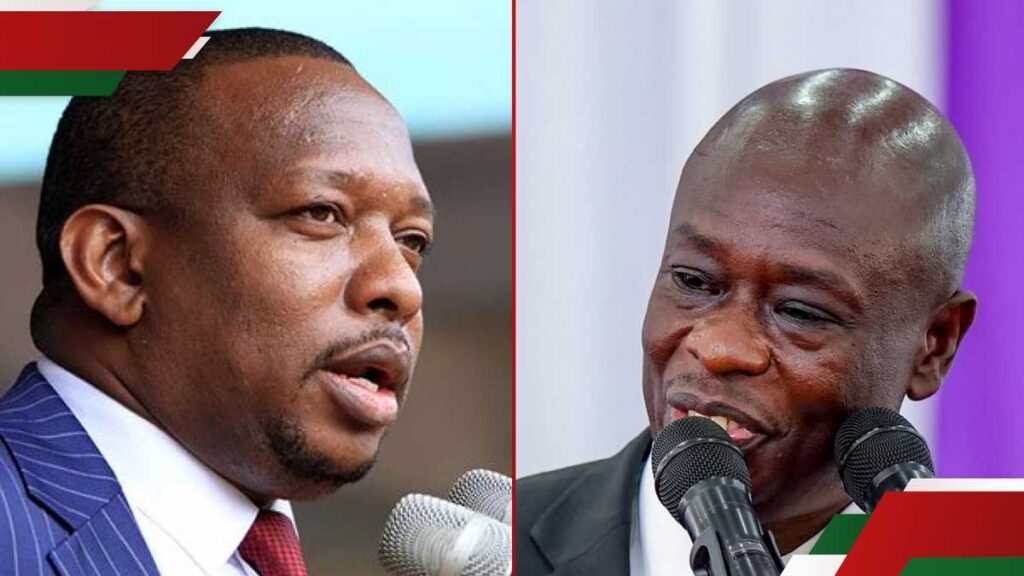At the height of the 2022 General Election campaigns, President William Ruto used a political narrative dubbed ‘hustler,’ which easily blended in with voters.
Seemingly convinced by the progress of his hustler push, observers have noted his move to assert a more inclusive and united front while on what he has called a journey to transform the country.
President Ruto has found a new narrative that conveys the message of “service for Kenya, not the villages and regions we come from.”
He has expanded his scope to ensure great success for his government and is embracing other issue-based avenues, focusing more on a united front to deliver.
On Sunday, for instance, he was categorical about his government’s transformational journey, saying it is steadily on course and will not allow any form of distraction while he implements his promise for a new and better country.
He urged leaders to put politics aside and allow the broad-based government to deliver, insisting on the need to move from politics of individuals to one united front.
“I want to promise you that I am focused and I will not be distracted. Let us unite and take the country forward,” he said after attending Sunday service at Africa Divine Church.
Even as he formed the broad-based government with senior-ranking members of the ODM party in July, the President’s message was clear.
He stated that the country’s potential has often been undermined by divisions arising from political competition.
Ruto emphasised that all leaders should work for the unity of Kenyans, reiterating his pledge that the government would lift those at the bottom.
“With the formation of this broad-based government that brings together former political rivals into one selfless, patriotic team, we will unlock the potential of our country that has long been denied to us by factional and sectarian competition,” Ruto said.

He indicated that the broad-based government marked the beginning of a new chapter in the country’s governance and development and must not fail.
During the impeachment of former Deputy President Rigathi Gachagua, Ruto’s silence was notable; however, when he did speak, his message focused on a more inclusive and united nation.
“Our heroes did not hail from one village or speak one language. They are numerous and diverse, united by a principled commitment to confront an unjust, exclusive, and oppressive system,’’ he said during the Mashujaa Day celebrations in Kwale.
Stay informed. Subscribe to our newsletter
He stated that no proposition to discriminate or unjustly diminish one while enlarging another’s rights is admissible and that any formula seeking to exclude, alienate, or disenfranchise anyone, for any reason, is repugnant to the very essence of nationhood.
“We are one people, and Kenya is one united, indivisible, and sovereign nation. The time for doubt and anxiety is slowly but surely getting behind us, and the space for criticism, scepticism, and pessimism is over,” he insisted.
Last week, as Deputy President Kithure Kindiki took the oath of office, Ruto mentioned that he has been lonely at the top and that for the last two years, he had no assistance to help him promote government projects and programmes.
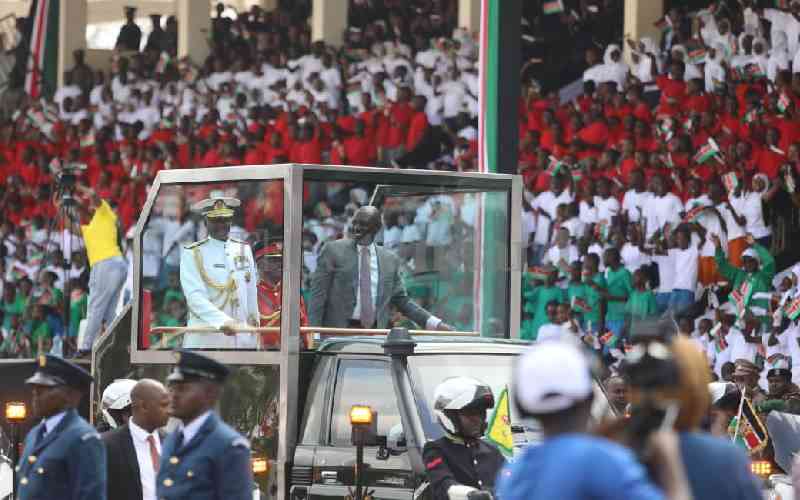
“My dear Prof. Kindiki, I need your voice; I need your intellect to help me and to assist members of our Cabinet in profiling the things we are doing. I have almost become a lonely voice in the Executive, especially in the presidency, speaking about our projects and elaborating on what we are doing,” Ruto said last Friday.
He called for a critical exploration of the role of manifestos, a program that has been voted for by millions of Kenyans alongside a candidate and a party.
“What happens to a government that has been elected on the basis of a manifesto? What weight does the court give whenever there is a challenge to a manifesto? I would invite the court to think about it,” Ruto stated yesterday at the Supreme Court conference in Nairobi.
“How do you respond to litigants or individuals who challenge a policy and a manifesto position canvassed among citizens who voted for the people? How do we use the place of a manifesto to remove politics of personalities and instead try to consolidate the focus on issues, policies, and how to work together to ensure the country consolidates its development trajectory or national program, backstopped by Kenyans through an election and rolled out by an elected government?” he posed.
“Sometimes, as a politician, you have to balance being popular with doing the right thing. Sometimes, they do not go together. Then you sacrifice your political capital to do the right thing, but then the court on the other side decides to be popular and undermines the agenda that you have,” Ruto stated.
When he took the oath of office in 2022, Ruto hit the ground running and began actualising his campaign promises, including the launch of the Hustler Fund. This also marked the beginning of operationalising the Bottom-Up Economic Transformation Agenda which is designed to address the economic challenges facing the country, a concept that has progressively aligned with government policies and programs.
Ruto is likely to focus on the mantra of “we are here to serve the country and not our villages,” forming a new political slogan distinct from the hustler one as he approaches the 2027 General Elections.








